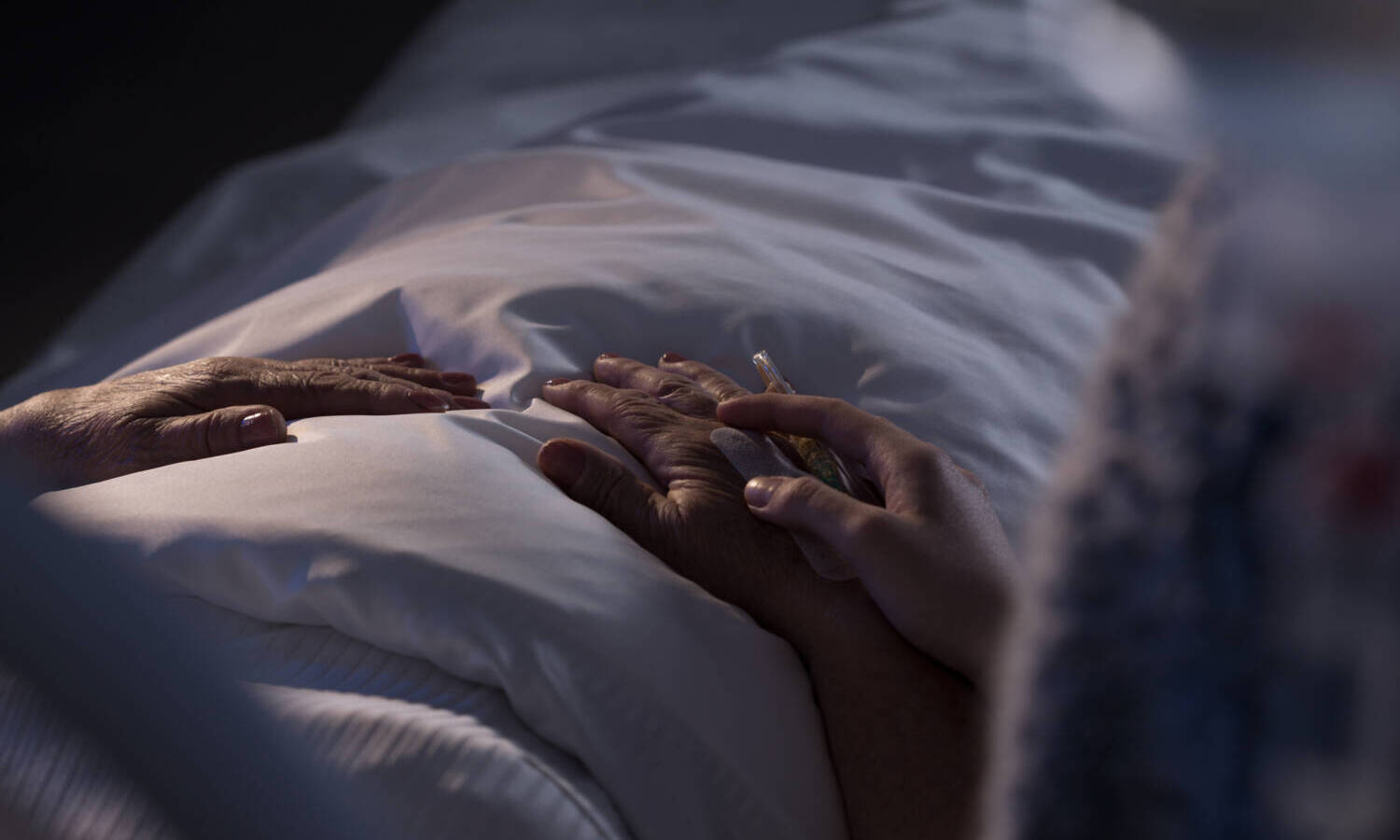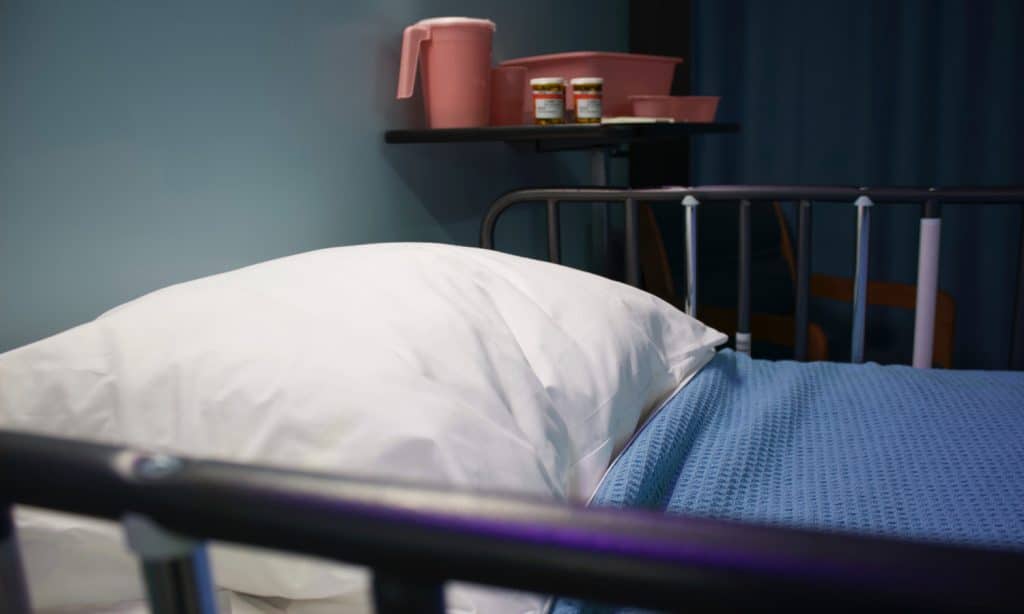
This article originally appeared on Cannabis.net and has been reposted with permission.
There’s tons of questions that overwhelm patients: how much cannabis to use, what method of administration is best, how often to take it, and so much more. Given these circumstances, most patients are left to their own devices when it comes to deciding how to use cannabis. And even then, doctors still don’t feel that they are equipped with the right knowledge to prescribe cannabis as a medication or part of their therapy.
Having said that, we are severely limiting the impact cannabis could have on the lives of patients, especially those who are terminally ill. There is already an astounding body of evidence that cannabis can make life more manageable for those with cancer, struggling through chemotherapy and radiation, Parkinson’s disease, and so much more.

So why can’t patients be given cannabis medications in the hospital, supervised the way they are with conventional medications?
California Is A Pioneer
In December 2021, California Governor Gavin Newsom made waves by signing a legislation from Senator Ben Hueso that would offer more choices for end-of-life options for locals with the requirement that certain healthcare facilities and hospitals would allow terminally-ill patients to use medical marijuana for pain relief or as part of their treatment.
“It is inconceivable to me that, in a state where medical cannabis was legalized more than 25 years ago, those in deepest suffering receiving treatment in our state’s healthcare facilities cannot access this proven, effective, and prescribed treatment,” explains Sen. Hueso. “Instead, terminally-ill patients in California healthcare facilities are given heavy opiates that rob them of their precious last moments with family and friends. This is a simple, yet critical, move that will provide relief, compassion and dignity to terminally-ill Californians.”
The law, officially known as SB 311 and given the nickname Ryan’s Law, is named after California native Ryan Bartell, who was also a veteran of the U.S. Coast Guard who died in 2018 after battling pancreatic cancer. His last few weeks were spent in the hospital, where he was being given fentanyl and morphine to help him manage his pain and go to sleep. His family tried to help him by giving him medical cannabis but the facility told that that it was not allowed. As a result, his family had to spend valuable time searching for a facility that would then allow the use of MMJ. Unfortunately, he only lived a few more weeks. With this law in place, no other family or patient will have to go through that hardship again.
“In the invaluable last days as Ryan fought stage 4 pancreatic cancer, I first-handedly experienced the positive impact medical cannabis had on my son’s well-being, as opposed to the harsh effects of opiates,” explained Jim Bartell, SB311 sponsor and Ryan’s father. “Medical cannabis is an excellent option for relieving pain and suffering in those who are terminally-ill, but most importantly it serves to provide compassion, support, and dignity to patients and their families, during their loved ones’ final days. Looking at each other, holding Ryan’s hand and telling him how much I loved him during his final moments would not have been possible without the medical cannabis.”
RELATED: Terminally Ill Californians Will Have Access To Medical Marijuana In Hospitals
SB 311 mandates healthcare facilities to have reasonable restrictions in how a patient keeps and uses their medical cannabis to ensure that they as well as other patients and employees of the medical institution are kept safe. The rules don’t apply to those who are being given emergency care, and in facilities where vaping and smoking cannabis is prohibited. In addition, the law doesn’t require the healthcare facility to be responsible for providing the cannabis for patients, and it also doesn’t require them to dispense cannabis from their in-house pharmacy.

RELATED: Should Cannabis Be Part Of Hospice Care?
In addition, the law has a harbor clause that would enable facilities to stop compliance to the law if a federal agency initiates law enforcement. However, the US Department of Justice is not allowed to use federal funds to meddle with state medical cannabis laws. The Biden Administration has also indicated that they would not interfere with state MMJ laws. “With this confirmation from CMS and the safeguards in the law, we are confident that healthcare facilities have the necessary authority to implement these provisions while ensuring the safety of other patients, guests, and employees of the healthcare facility, compliance with other state laws, and the safe operations of the healthcare facility,” Sen. Hueso explains.
Putting The Compassion In Compassionate Care
The term ‘compassionate care’ is thrown around so carelessly. It’s widely used, yet improperly.
Since cannabis is still illegal in the eyes of federal law, hospitals and healthcare facilities cannot let their patients use cannabis and thus face the risk of having to pay penalties or even lose federal funding. But it’s in hospitals where you will find some of the patients that need cannabis the most, especially those in palliative care and struggling through terminal illness.
RELATED: How One Pediatrician Uses Marijuana And CBD In Palliative Care
We need more bills like SB 311 around the country to ensure that patients have access to cannabis when they need them, and can take them safely under the supervision of skilled medical professionals who have the confidence to do so.
Otherwise, there really is no compassion in compassionate care.
This article originally appeared on Cannabis.net and has been reposted with permission.





